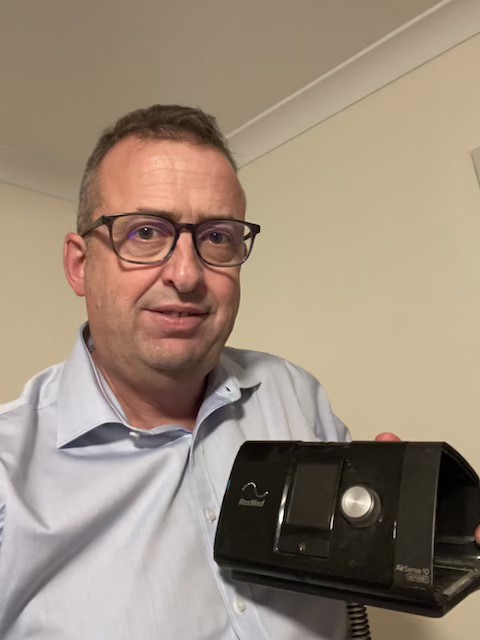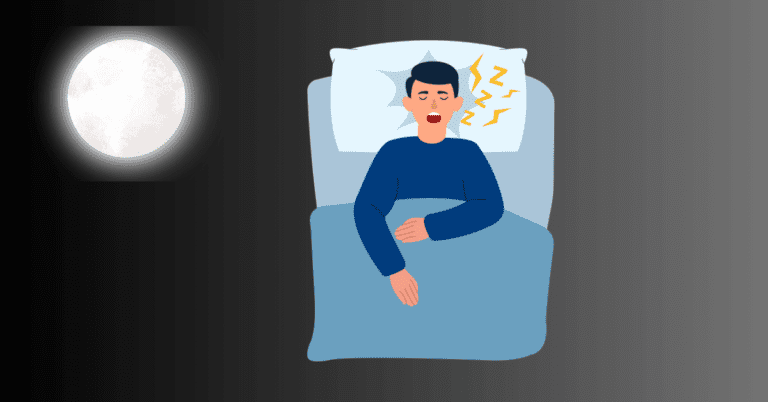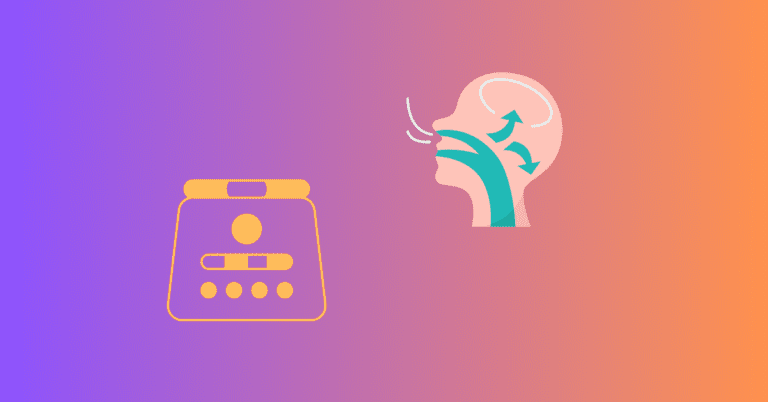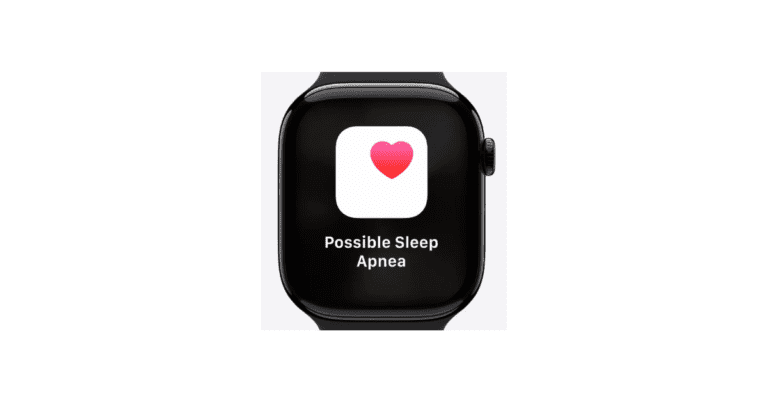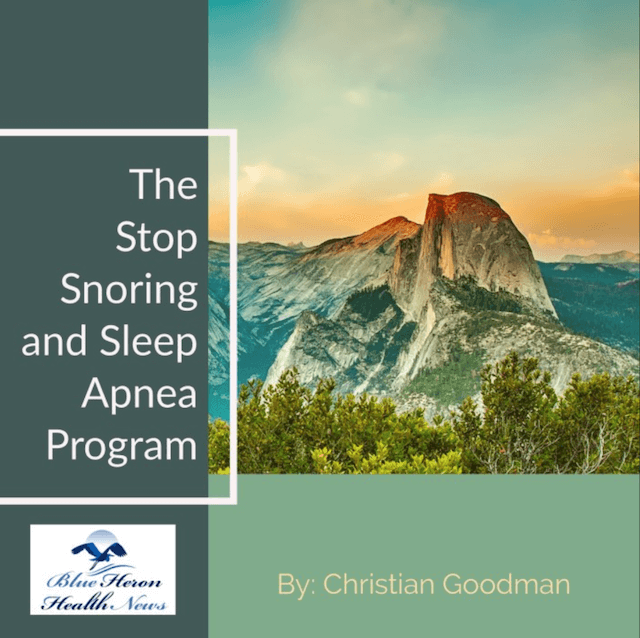Can a Deviated Septum Cause Sleep Apnea?
Jeremy Smith is a long-term CPAP user and sleep apnea advocate. After being diagnosed with severe obstructive sleep apnea, he created ByJeremySmith.com to help others navigate CPAP therapy through personal stories, gear reviews, and practical advice.
A deviated septum is a common nasal condition affecting breathing, but can it cause sleep apnea?
I can speak from experience because I had a deviated septum, which I had an operation on.

The short answer: It can contribute to sleep-disordered breathing, but it’s rarely the sole cause of obstructive sleep apnea (OSA).
And this is precisely what I discovered in my case.
However, treating the nasal obstruction might improve your CPAP therapy and overall sleep quality if you have both a deviated septum and sleep apnea.
Let’s examine how a deviated septum affects sleep, its relationship with sleep apnea, and how to improve one’s breathing at night.
What Is a Deviated Septum?
The septum is the thin cartilage and bone wall separating your nostrils. In an ideal nose, the septum is straight, allowing equal airflow through both nostrils. But in about 80% of people, the septum is at least slightly off-center—this is what’s known as a deviated septum.
In some cases, the deviation is mild and causes no symptoms. But when severe, it can lead to:
- Chronic nasal congestion (often worse on one side)
- Frequent sinus infections
- Difficulty breathing through the nose
- Snoring or noisy breathing at night
If you’re experiencing these issues and struggling with sleep apnea, your deviated septum might be playing a role in worsening your symptoms.
Can a Deviated Septum Directly Cause Sleep Apnea?
A deviated septum alone does not cause sleep apnea, but it can worsen airway obstruction, making it harder to breathe while you sleep.
Sleep apnea occurs when the airway collapses or becomes blocked repeatedly during sleep.
This blockage can happen anywhere along the airway, from the nose down to the throat. If your nasal passages are already restricted due to a deviated septum, it can make it even harder to get enough airflow, especially when combined with other risk factors like:
- Enlarged tonsils or adenoids
- Obesity (which adds pressure to the airway)
- Weak throat muscles
- Large tongue or small airway structure
So while a deviated septum alone isn’t a direct cause of sleep apnea, it can make existing OSA symptoms worse or make it harder to tolerate CPAP therapy.
How a Deviated Septum Affects Sleep Apnea
If you have sleep apnea and a deviated septum, you might notice:
- More severe nasal congestion at night, making it harder to breathe
- Increased mouth breathing, which can dry out your throat and worsen snoring
- Difficulty using a CPAP mask, especially nasal pillows or nasal masks
- Less effective CPAP therapy since a blocked nose makes it harder to maintain positive airway pressure
Mouth Breathing and Sleep Apnea
One of the most significant issues with a deviated septum is that it forces you to breathe through your mouth at night. Mouth breathing is linked to:
- More frequent apneas (breathing pauses)
- Increased snoring and airway collapse
- Dry mouth and throat discomfort
- Less effective CPAP therapy (since CPAP works best with a closed-mouth seal)
If you’re struggling with CPAP due to a deviated septum, you might need a full-face mask instead of a nasal mask. But even better, treating the nasal blockage can help improve your therapy results.
Treatment Options for a Deviated Septum and Sleep Apnea
If you have both a deviated septum and sleep apnea, there are several ways to improve your breathing and sleep quality.
1. CPAP Therapy Adjustments
If you’re using CPAP but struggling with nasal congestion, try these solutions:
- Use a full-face mask: This allows you to breathe through both your nose and mouth, bypassing nasal blockages.
- Try a heated humidifier: CPAP humidification can reduce dryness and nasal irritation.
- Use a nasal saline spray: A saline rinse before bed can help clear your nasal passages.
- Consider a nasal decongestant: Temporary use of nasal sprays (like Flonase) can reduce swelling, but avoid long-term use of decongestant sprays like Afrin.
2. Nasal Strips or Dilators
Over-the-counter nasal strips (like Breathe Right) or nasal dilators (like Mute) can physically open your nostrils, making it easier to breathe at night. These don’t cure a deviated septum but can offer relief for mild cases.
3. Allergy Management
If allergies worsen your nasal congestion, consider:
- Antihistamines (like Claritin or Zyrtec)
- Nasal steroid sprays (like Flonase)
- HEPA air purifiers to reduce allergens in your bedroom
4. Septoplasty Surgery
For severe cases, a septoplasty (surgery to straighten the septum) may be the best option. Septoplasty:
- Improves nasal airflow
- Reduces nasal congestion and mouth breathing
- Can make CPAP therapy more effective
Septoplasty does not cure sleep apnea, but if your nasal obstruction is making apnea worse, it can be a game-changer for breathing and CPAP use.
Final Thoughts
A deviated septum can worsen sleep apnea symptoms, but it’s usually not the sole cause. If you have OSA and a blocked nose, addressing the nasal obstruction can help improve your sleep, reduce snoring, and make CPAP therapy more effective.
If you’re struggling with sleep apnea and nasal congestion, talk to a doctor about treatment options. Fixing your nasal airflow won’t cure sleep apnea, but it might make your CPAP therapy (and your sleep) much better! 🚀
Disclaimer: The content on this blog is for informational and educational purposes only and is not a substitute for professional medical advice. Always speak with your doctor or sleep specialist before starting, stopping, or changing any treatment or therapy related to sleep apnea or CPAP use.
